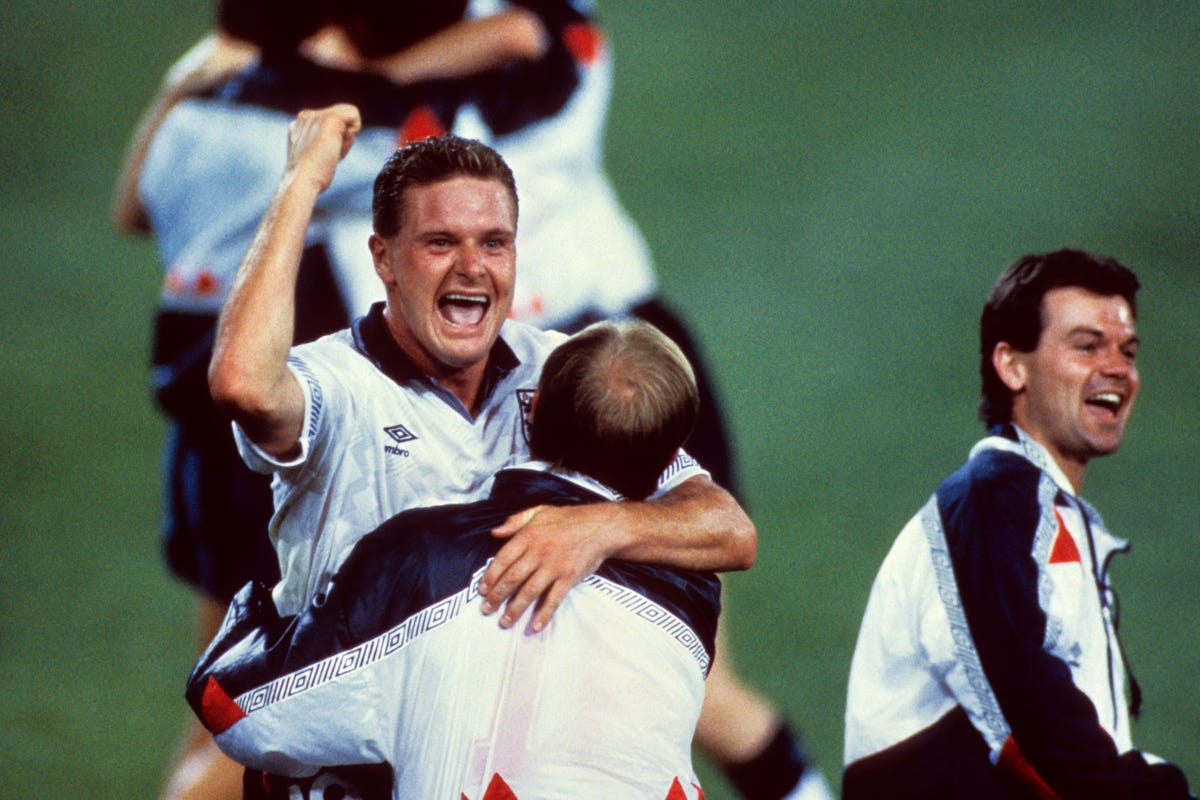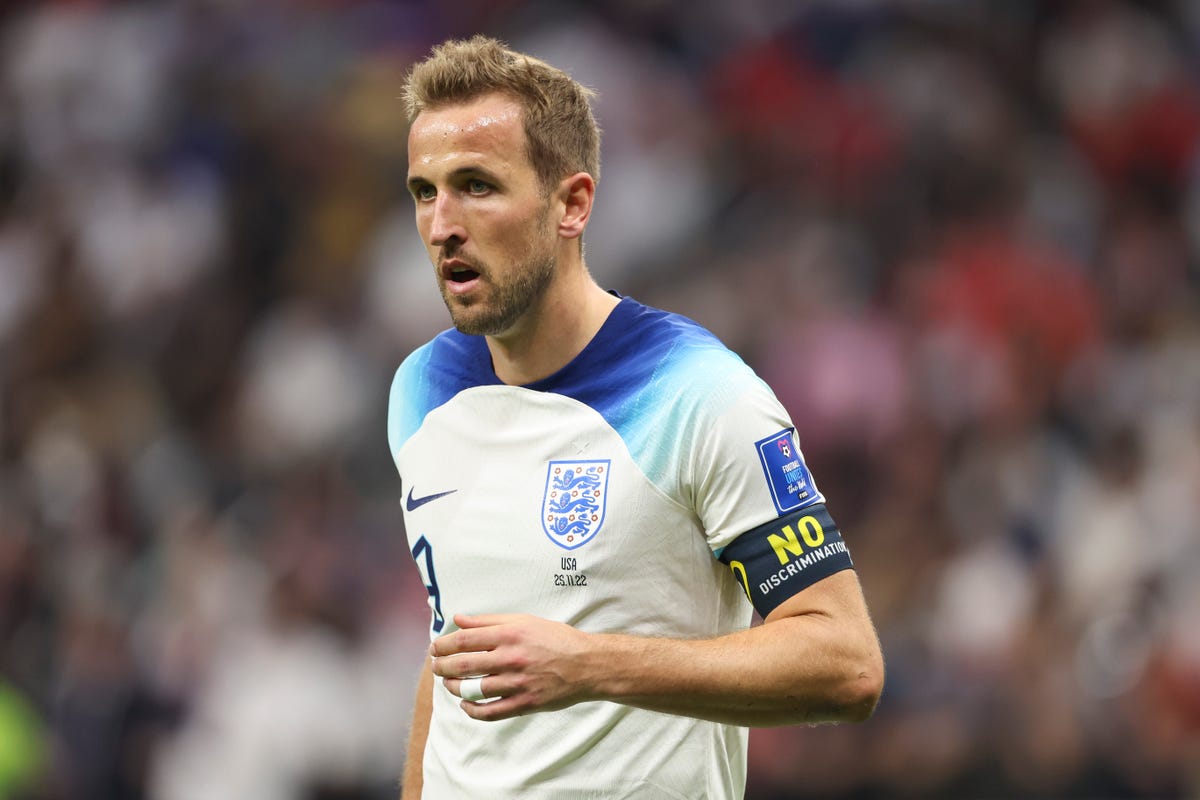[ad_1]
I want to enjoy the World Cup. I really do. But it’s almost impossible to enjoy the beautiful game when this cursed competition is set in such a sordid context.
The 2022 World Cup, like all sporting events, should be all about bringing people together. For fans and players of all ages, sports should inspire teamwork, health and community. The World Cup should be for kids, for lifelong fans, for family members seeking common ground — and for the Welsh, who qualified for only the second time ever.
It should be for anyone who needs some respite from the relentless tide of awfulness of the past few years. But it should also be for the workers, activists and LGBTQ community of host nation Qatar and across the globe. It should be for people who just want to live their lives and enjoy themselves, without money and hatred tainting everything.
Despite FIFA’s plea to focus on the game, there’s been as much conversation about what’s happening off the field as on it. Will players wear rainbow armbands to protest the region’s homophobic laws? Or should we just accept each other’s beliefs, no matter how abhorrent they seem? Should we support a sport mired in bribery and corruption? Can we sing and cheer in stadiums that people died to build? And are we hypocrites if we condemn other nations without condemning the injustices in our own?
It’s a lot.
I’m British, and I’m a soccer/football fan (in an on-and-off, love-hate sort of way). I bought an England replica shirt recently, but not one of the current England shirts worn by Harry Kane and chums in Qatar. No, I bought a replica of the shirt England’s players wore at Italia ’90.
1990 World Cup
I was 10 years old and in the prime of footballing obsession when I got to stay up late with my Dad watching the 1990 World Cup. It was a brilliant bonding experience for me and my Dad. England’s fairytale last-minute winning goal by David Platt against Belgium. The Republic of Ireland’s plucky progress. Cameroon striker Roger Milla’s heroics. And ultimately heartbreak, of course.
Sport was a rare point of connection with my Dad. We moved around a few times when I was young and supporting the local team of my birthplace was a way of keeping in touch with my roots, and especially with my Dad. He was a lifelong sports fan. Something he never became a fan of was talking: Hello, how’s work, I’ll pass the phone to your mother.

England’s Paul Gascoigne celebrates another win during Italia ’90. What a cool shirt.
Peter Robinson/PA Images via Getty Images
No World Cup has ever spoken to me on such an emotional level as the one when I was a kid. I ended up drifting away from supporting my local team, which sadly coincided with its all-time golden era. I reaffirmed my support as I got older, which of course was timed perfectly with the team’s plummet down through the leagues to near bankruptcy and within touching distance of folding entirely. Such is the life of a football fan, or certainly of a Tranmere Rovers fan.
My team used to be sponsored by the local authority, which meant players and fans wore shirts showing the name of the local area — not a betting company or some other crass commercial tie-in. For the past couple of years these shirts have been emblazoned with the name of a multinational oil and gas company. Yeah, I know. Everybody wants to support their club, but you don’t need to become a walking billboard for energy and utility companies that raise prices and dump sewage off our beaches while still reporting record profits.
Deal with the devil
Having seen my team spiral toward bankruptcy — while other clubs disappeared entirely — I know all too well that your team needs money to survive. But the price apparently is a sponsorship deal with the devil. It’s unsettling to see young fans of Arsenal, Chelsea, Real Madrid and the like wearing replica shirts emblazoned with “Fly Emirates,” a marketing campaign that weaponizes youthful fandom to promote a state-owned airline carrying vacationers and influencers to Dubai (another homophobic and repressive regime built by exploited workers).
As we speak, both Manchester United and Liverpool, two of the most storied clubs in the world, may be taken over by Saudi Arabia. As journalist James Montague reports in his nerve-jangling book on sports ownership, The Billionaires Club, snapping up a beloved sporting teams is a form of reputation laundering bought and paid for by oligarchs, venture capitalists and human rights abusers across the globe.

England captain Harry Kane wearing an armband reading “No Discrimination” during the World Cup match against USA at Al Bayt Stadium on Nov. 25.
Matthew Ashton/AMA/Getty Images
That’s the problem these days. It’s hard to enjoy almost anything if you look too closely. From soccer to Star Wars, there’s no turning a blind eye to how everything is so complicated, so political, so interconnected. The food we eat, the clothes we wear and the vacations we choose have an impact on our environment. Corporations pollute the planet on an industrial scale, and celebrities take private jets to the corner store. Yet I feel guilty if I eat a burger.
We’ve never had so much information about our world and our place in it — and that takes half the fun out of almost anything that brings you joy.
An act of nostalgia
My Dad and Mum both died in 2020. It doesn’t take a psychologist to see that buying the 1990 World Cup shirt was a pretty transparent act of nostalgia, for childhood innocence, for a simpler time before I knew anything about billionaire owners, human rights abuses and arms deals. (Or maybe I got sucked in by the relentless Instagram adverts. I’m not sure.) And I was very happy to be swept up in the mood of delight at the England women’s team winning this summer’s European championship. It was just nice to feel good about something, y’know?
It’s possible that I’m just getting old or maybe spending too much time on Twitter. I’m certainly not saying that things used to be better or actually simpler. Everything is political and always has been.
Ten-year-old kids kicking a ball ’round the garden didn’t know that England’s 1990 World Cup matches were confined to the island of Sardinia to contain English fans, then widely seen as violent troublemakers after the hooliganism of the 1970s and 1980s.
Young fans didn’t know about politically charged ties between countries and clubs at odds for reasons other than sporting pride, like the 1986 clash between England and Argentina a few years after the two countries fought a war.
Similarly, young viewers didn’t consciously register the politics of Star Trek or Doctor Who or whatever else they were obsessed with. But if you watch that stuff now, you understand that, of course, it was political. It said something about the context of the times, just like this World Cup does with its combustible cocktail of sporting, political, financial and moral perplexities.
Hopefully there is still a generation of kids who are inspired by this World Cup. Inspired to play sports, to push themselves, to move about and be healthy, to be part of a team and a community in a positive way. But more than that, the 2022 World Cup could inspire generations of sports fans and even those who couldn’t care less about the game to stand up for each other, for fellow workers, for the LGBTQ community and for anyone who is exploited or oppressed.
And maybe to call their Mum and Dad too.
Movies Coming in 2022 From Marvel, Netflix, DC and More
2022’s Best TV Shows You Can’t Miss on Netflix, HBO, Disney Plus and More
[ad_2]
